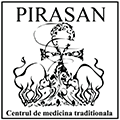Dysmenorrhea is usually announced by premenstrual cramps. It is a typical syndrome for many women all over the world. However, painful periods should not be considered an unavoidable process of the menstrual period. They may be avoided.
Dysmenorrhea is characterized by uterine contractions. They are triggered by the receptors in the mucous tissue of the uterus that are excited by hormonal and physiological factors. Women with excess of prostaglandin – which acts upon the receptors as a chemical agent – are predisposed to excessive stimulation and, consequently, they suffer from dysmenorrhea more often.
One of the factors influencing the prostaglandin production is the consumption of foods to which the body is allergic. For example, certain women react to yeast, pastas, bread and sweets. Similarly, processed fruit may cause dysmenorrhea, too.
Another factor causing dysmenorrhea is an inappropriate diet. A lot of women consume foods with low nutritional values, foods that contain preservatives, caffeine, things that are harmful to the body. The proteins derived from red meat and dairy products contain dangerous hormones that affect the human body. Fats and roasted food have the same negative effect.
Dismenorrhea develops spasms but it may also develop pains and sensation of ponderosity in the lower back and in the thighs.
Other symptoms that we may see in the patients suffering from dysmenorrhea are the following: vomiting , nausea , loss of appetite, headaches , dizziness, nervousness , lethargy, depression and diarrhea. Dysmenorrhea starts at the beginning of the menstrual cycle; it lasts several hours but in certain cases it lasts even several days.
Stress is a major factor that adds to the causes of dysmenorrhea. In some women, the problem vanishes or it gets milder after delivery. Allopathic medicine treats dysmenorrhea by ibuprofen, a drug that diminishes the prostaglandin production but affects the kidneys in time.
Traditional medicine treats this disease with utmost seriousness, as it may cause many disorders in the body. The history of traditional medicine has proven that a certain type of herbal hydroalcoholic extracts helps women with dysmenorrhea and – what’s most important – with the help of acupuncture, this disease can be cured. Should the treatment and the advice of the traditional medicine physician be strictly observed and applied, there is no possibility of relapse in these cases.

